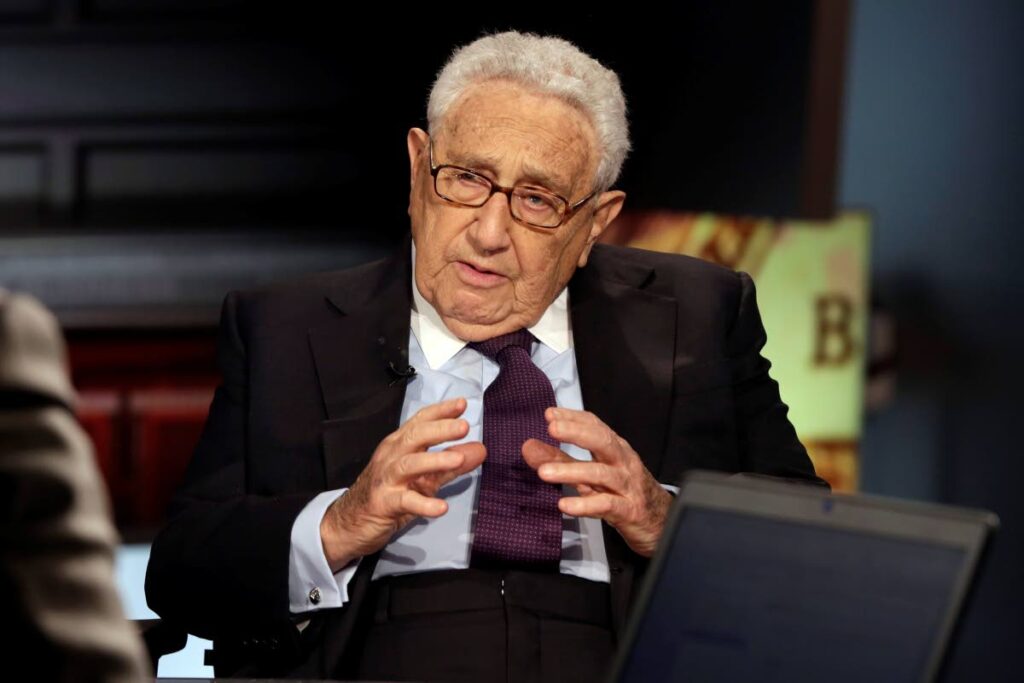Kissinger’s long goodbye

PEACE – the notion of it, the pursuit of it – troubled Henry Kissinger.
In his first book, peace is not an axiomatic value but a problem. “Those ages which in retrospect seem most peaceful were least in search of peace,” he wrote. “Those whose quest for it seems unending appear least able to achieve tranquillity.”
The 1957 academic tome A World Restored: Metternich, Castlereagh and the Problems of Peace announced the arrival of a US foreign policy thinker whose moral relativism was as chilling as he became powerful. Few have made as dramatic a transition from academia to diplomacy.
Fewer have shaped global perceptions of US policy more. Under him, Martin Luther King Jr’s idea of the arc of the universe bending towards justice was replaced with the idea of history being stalked by Nemesis: cyclical disarray.
The heyday of Dr Kissinger, who died this week at 100, may be long over. Many are too young to remember him; some were not yet born when he served, under two successive American presidents, Richard Nixon and Gerald Ford, as Secretary of State. Nevertheless, the Kissinger name remains a byword for American statecraft.
And yet the evils associated with Dr Kissinger are innumerable.
He approved the carpet-bombing of Cambodia at the height of protests against the Vietnam War. That bombing was just to prove a point. As many as 500,000 Cambodians died.
In Chile, he oversaw the Central Intelligence Agency’s deposing of Salvador Allende and the installation of Augusto Pinochet. Under that dictator, 80,000 people were jailed and tortured. At least 3,000 remain missing.
Elsewhere in Latin America, he supported those in Argentina who deposed Isabel Perón, the first woman to serve as the president of a country. Many people were “disappeared” during the subsequent Dirty War.
Also supported by the US under him was Pakistan during the Bangladesh Liberation War, despite Pakistan’s genocide. Similarly, Indonesia’s invasion of East Timor, in which 200,000 people died, was approved by Dr Kissinger.
Many of these measures, taken ostensibly because of an interest in the ideologies of others and their perceived risks, spelled out an ideology of their own. Many were orchestrated in secret because of Dr Kissinger’s avowed contempt for elected legislators. They have only come to light because of leaks or the disclosure of archives.
In one of his last books, On China, Dr Kissinger, citing Immanuel Kant, wrote that perpetual peace could happen in one of only two ways: by insight or by catastrophe.
At a moment when US, Chinese and Russian interests are warring and when the values of the international order are being tested in horrific ways, it is worth asking how much the world has changed and whether Dr Kissinger will be proven tragically correct.


Comments
"Kissinger’s long goodbye"